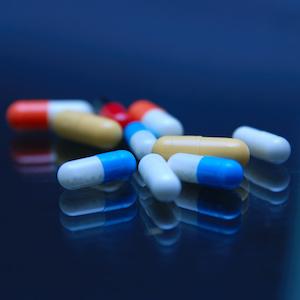Have you noticed that drug commercials always conclude with some ominous warning like, "This drug may cause headache, anxiety, vomiting, diarrhea, restlessness, and erectile dysfunction"?
There's a reason for that. To stay out of trouble, pharmaceutical companies list every possible thing that might ever go wrong with a patient. In reality, most people who take the drug will never experience those side effects. But if they do, it's probably not because of the drug. Instead, it's due to the nocebo effect.
The nocebo effect is the evil twin of the placebo effect. With the placebo effect, a treatment (even if ineffective) makes a person feel better simply because he got a doctor to prescribe him something. A person experiencing the placebo effect even undergoes measurable physiological changes.
At the opposite extreme, a person experiencing the nocebo effect feels badly, not because the drug (or placebo) has nasty side effects, but because the person literally makes himself sick. If a doctor tells a patient that a treatment may make him feel dizzy, the patient very well may report feeling dizzy. And there's a good chance that the patient manifested that symptom precisely because he expected it.
If all of this sounds too nutty to be true, rest assured that it is all extremely well documented. (This has even given rise to bioethics debates about whether doctors should prescribe placebos to patients for subjective conditions, such as pain.) One extremely unusual case demonstrates just how powerful the placebo/nocebo effect really can be.
The Man Who Overdosed on Placebo
Several years ago, a published case study describes a 26-year-old man who was taken to the emergency room. After arguing with his ex-girlfriend, he attempted suicide by swallowing 29 capsules of an experimental drug that he obtained from a clinical trial that was testing a new antidepressant. When he arrived at the hospital, he was sluggish, shaking, and sweating and had rapid breathing. His blood pressure was extremely low at 80/40, and his pulse was 110.
Doctors were successful at raising his blood pressure. Over the course of four hours, they injected him with 6 liters of saline solution. His blood pressure increased to 100/62, which is at the lower end of the normal range, but his pulse remained high at 106.
What finally cured the patient wasn't anything the emergency room staff did. Instead, a doctor from the clinical trial arrived at the hospital. He told the patient that those antidepressant pills weren't antidepressants because he had been randomized into the control arm of the trial. Yes, that's right: He overdosed on placebos.
Oh.
Within 15 minutes, the patient's blood pressure stabilized at 126/80, and his heart rate dropped to a perfectly normal 80 beats per minute.
The Placebo Paradox
The placebo/nocebo effect can be so strong that a drug meant to do one thing can make the patient feel as if it is doing the exact opposite. From the aforementioned case study:
Tension has been shown to increase in subjects given inert substances and even muscle relaxants if the subjects believed they were stimulants. Paradoxical responses have been demonstrated to bronchoconstrictors and bronchodilators in asthmatic patients who thought they were receiving the opposite medications. Allergic responses and decreases in allergic responses have occurred in subjects given saline injections, apparently related to the subjects’ beliefs about what kind of injection they were being given.
Understanding the power of the placebo/nocebo effect is necessary if we are to fully explain why alternative medicine remains popular. When so many people have been conditioned to fear Big Pharma, it's no wonder that many patients feel better after sniffing some scented candles and drinking homeopathic potions. Ironically, it's exactly what science would predict.




